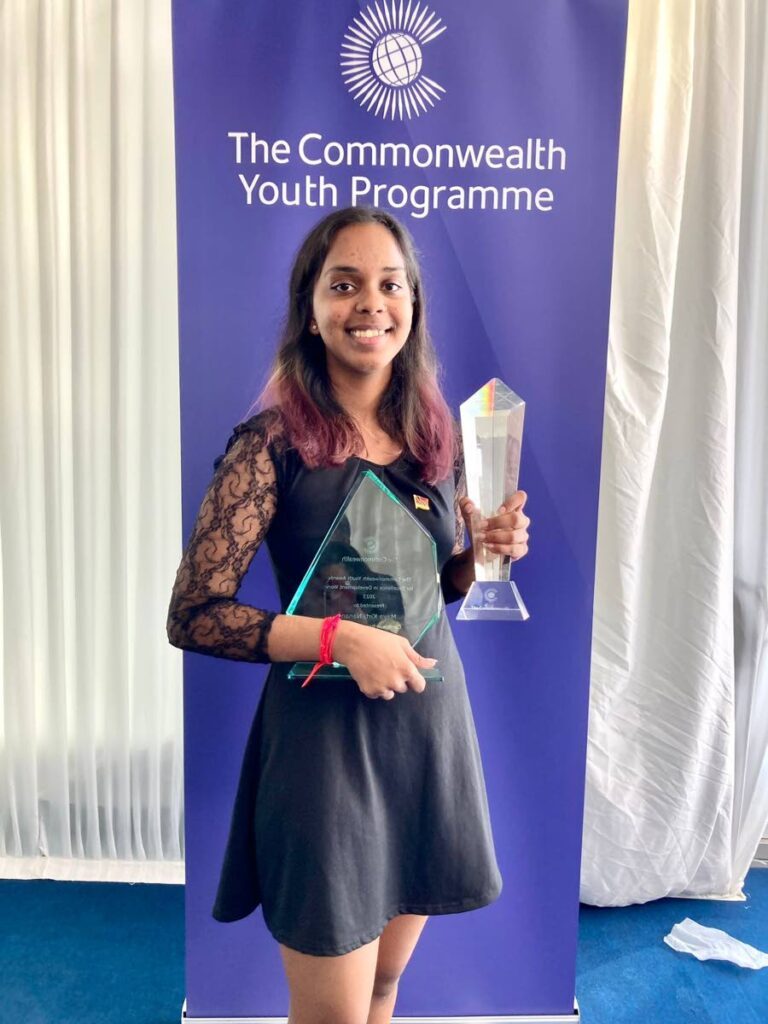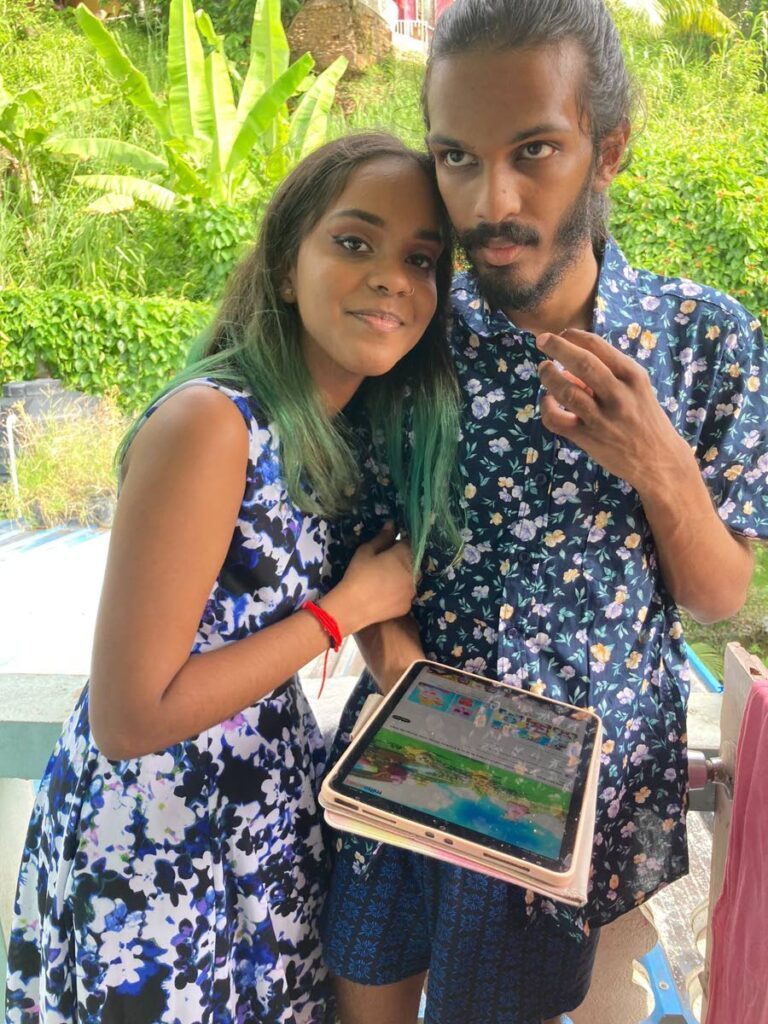Helping siblings become advocates

DR RADICA MAHASE
Last Thursday, I had an extremely happy moment as I watched my 20-year-old niece Maya Kirti Nanan receive the award for the Commonwealth Young Person of the Year.
When I nominated her for this award, I had never envisaged that it would end with her being presented with a certificate and trophy by the Duke of Edinburgh, Prince Edward, and the Commonwealth Secretary-General Patricia Scotland KC, at an award ceremony at St James’s Palace in London.
I actually had no expectations when I nominated her, and that’s simply because both Nanan and I have been advocating all these years, not with the intention of being rewarded, but with the narrow vision of providing for Rahul.
Our main focus has always been to create a better world for him and everyone diagnosed with autism. Of course, the rewards and acknowledgements are most welcome, especially as they help to bring a different level of awareness to the cause and to the fight!
Nanan’s advocacy journey did not happen overnight, though. It started with us, her mom and I, who deliberately included her in every aspect of Rahul’s life. From about five years old, she was always questioning us – "Why is Rahul at home and I have to go to school? Why isn’t Rahul brushing his teeth and I have to brush mine? Why is Rahul walking on his toes?"
The questions were endless, but we took the time to answer them. At first we would simply say that Rahul was special, but we knew that wasn’t a sufficient explanation. I remember showing her YouTube videos which explained autism to children.
When she was about seven, we scheduled a home visit by a speech therapist (he never used to go into any buildings) and she insisted she was not going to school that day because she had to see what “they were coming to do to Rahul.” We allowed her to stay home and to sit in for the assessment and asked her questions.

- Courtesy Radica Mahase
She is just 15 months older than him and she wanted to be a part of everything that involved her brother. We nurtured that curiosity and encouraged her to learn about autism and, more importantly, to understand him.
What many people don’t realise is that living with a sibling with special needs/disability can be challenging. Too often the focus is on the child with special needs, and the neurotypical sibling feels left out, isolated and craves attention. Living with a sibling with special needs demand a different level of love and commitment.
Too many times neurotypical siblings grow up being resentful of their brothers and sisters who are on the spectrum. Sometimes they have to miss out on social activities, they have to deal with meltdowns and parents who are exhausted. There is also that extra pressure of knowing that they have to take care of their special-needs siblings, if not now, then later on in life.
It was no different for Nanan. She missed numerous social activities, passed up on limes with her friends, couldn’t engage in certain activities because Rahul had therapy or Rahul was having a challenging day or simply because her mom and I were too tired to take her. There are many days we were late for an activity or event or we had to leave early because we needed to be at home with him or to take him for his therapy sessions, or something else. Many brothers and sisters sacrifice a lot in the process of being part of the support system for the siblings with special needs.
Too often parents expect the neurotypical sibling to “make way” for the special-needs child, to understand that the brother/sister needs more care and attention, and expect them to become caregivers in some ways. This can be rather unfair and can lead to resentment and conflict within the family.
Many parents may not even realise that they play a crucial role in the nature of the relationships that develop among siblings. It is up to parents to nurture the siblings bond and to give it space to develop over time. They can do so by explaining about the sibling’s special needs. They can help the neurotypical child to understand what makes the sibling so “different” or “special.”
From a very young age, teach them about autism, have honest and open conversations with them. Discuss the challenges with them and include them in everything.
Too many parents think that children are "too small to understand" or try to protect their neurotypical children by keeping them away from siblings who are having meltdowns, etc.
Don’t underestimate the power of siblings' love and connection. Give them the space to understand each other and to develop their deep love for and connection with each other. When that happens they will become natural advocates, they will want to protect and their special-needs siblings and to care for them, not out of a sense of obligation but because of the deep love they have.
As Nanan said, “I won’t change anything about my brother. I will continue to be his voice and I will always fight for him. It is because of him that I am the person I am today.”
Radica Mahase is the founder/director of Support Autism T&T


Comments
"Helping siblings become advocates"